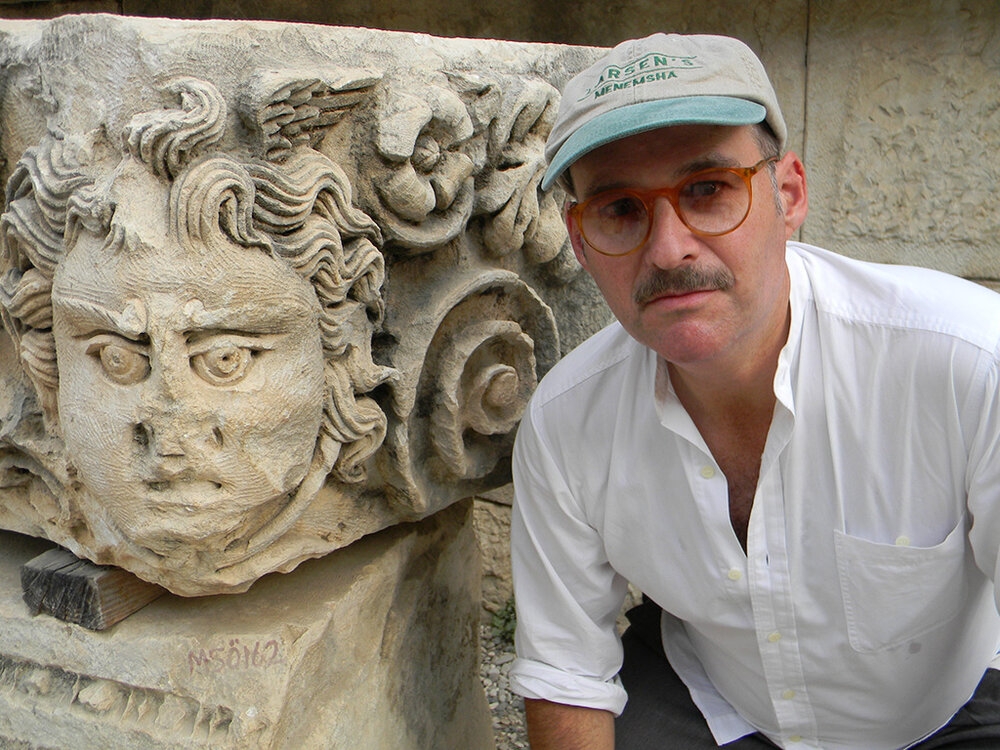You may have read recently about how Geoffrey Hinton, the “Godfather of AI,” decided he had to “blow the whistle” on the technology. Hinton says he is concerned about Artificial Intelligence’s potential to create a world where many will “not be able to know what is true anymore” and other dangers that come with making vast computer power more autonomous. The obvious threats to intellectual and media integrity are only the tip of the iceberg. Consider, for example, the potential for “deep fakes”: manufactured audio and video material for use against political opponents. And it only gets worse from there.
“If it gets to be much smarter than us, [AI] will be very good at manipulation because it will have learned that from us, and there are very few examples of a more intelligent thing being controlled by a less intelligent thing,” Hinton told CNN.
Sounding a lot like “The Matrix,” Hinton warned that AI could kill humans and there might be no way to stop it. “It will figure out ways of getting around restrictions we put on it,” he says. “It will figure out ways of manipulating people to do what it wants.”
Other experts, such as Gary Marcus, host of the “Humans vs. Machines” podcast, don’t think such doomsday scenarios are exaggerated. From AI-induced suicide to bad medical and psychological advice to fake news-on-demand to cybercrime, the plausible threats are real and scary. Worst of all, as Marcus told PBS, is that “we really don’t know the scope of it.”
Writing in the New York Times, Thomas Friedman says the world is opening two Pandora’s boxes filled with unintended consequences: generative IA and climate change. Hinton says he thinks AI may be a bigger, more urgent threat than climate change. And while Congress is dragging its feet on regulating it, the US and China are locked in in an arms race to develop the technology.
So what can we do?
One part of the answer is obvious. Moving toward a world where it is harder and harder to distinguish truth from lies, the need has never been greater for people to be educated in the skills of critical thinking — the very skills that come with a liberal arts education.
The more technology advances, and the more it permeates our private and communal lives, the more we citizens need to understand it, control its uses democratically and in our personal lives, and see its relations to everything else. We need to appreciate the awesome potential of science as well as its limits and dangers in a democratic culture and its impact on other realms of life. And we need to distinguish real science from pseudoscience and make intelligent public and private choices about the uses and effects of technology. We might also heed Thoreau, who said, “All our inventions are but improved means to an unimproved end.”
Science must always be part of the democratic conversation — but not the whole. And it must always be part of a liberal education, but not the whole.
The STEM disciplines are vital to productivity and national security. So is the rainbow of human knowledge afforded to us by the liberal arts: the ability to think “broadly,” “flexibly,” and “critically, as well as the skill to “communicate effectively,” “work in teams,” “adapt to change,” and be a good citizen. Scores of writers on the liberal arts have stressed these common aims, often using those exact words.
In a world that is increasingly, in Friedman’s words, “hot, flat, and crowded” due to global warming, interconnectivity, and population growth, just how important are the liberal arts? The need for sound thinking may explain why universities around the world have recently begun to embrace the liberal arts ideal that American education has done so much to promote, even as some among us question or attack it. It’s why American business leaders, scholars, and educators at specialized schools such as culinary institutes and military academies insist that students gain the breadth and sophistication – civic, economic, and cultural – that only comes with exposure to the liberal arts.
Much as we need STEM and vocational education, only the liberal arts prepare us to be well-rounded citizens and critical thinkers. In other words: no liberal arts means no democracy. And for decades, American politicians have been defunding the liberal arts.
Can we solve the twin Pandora’s boxes of AI and climate change? Not if we don’t try. What’s clear is that we need all the critical thinking power we can muster to face these challenges, and liberal arts education is the best path to it.
Democracy and the Liberal Arts(Opens in a new browser tab)
About the Author: Acclaimed author and freelance writer Jeffrey Scheuer has published essays, articles, reviews, and commentary in The New York Times, The Washington Post, and some two dozen other daily newspapers and publications, including Dissent, The Fletcher Forum of World Affairs, Gettysburg Review, Potomac Review, Wilson Quarterly, Nieman Reports, and Philosophy Now. His new book “Inside the Liberal Arts: Critical Thinking and Citizenship” is the only book to systematically relate the liberal arts to critical thinking and citizenship. He is also the author of “The Big Picture: Why Democracies Need Journalistic Excellence” (2007) and “The Sound Bite Society” (1999), named a Choice “Outstanding Academic Title.”
For more information, visit JeffreyScheuer.com.
By Jeffrey Scheuer
